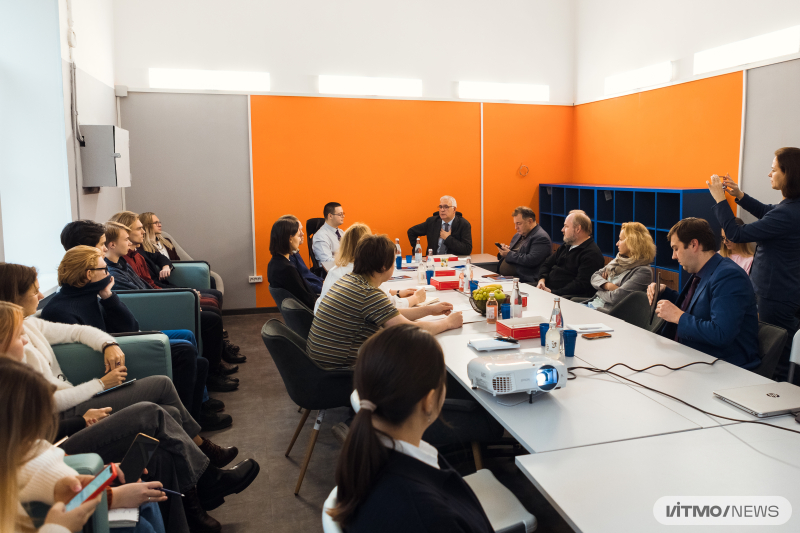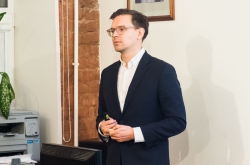It is critical to understand a chemical compound's properties, structure, and kind of atomic bonding in order to determine whether it is suitable for usage as, for instance, a solar cell component or a prospective treatment or identify how it will interact with other molecules. This information can be obtained either post-factum by examining the compound in question with physical and chemical methods (e.g., titration, calculating the concentration of a chemical solution, or spectroscopy, studying the interaction of electromagnetic radiation with a substance) or prior to the synthesis by analyzing the parameters of various candidates using theoretical chemistry methods, namely calculations and computer modeling.
The second approach is more efficient in terms of time and reagents used; it also requires fewer experiments.
The new digital laboratory will allow researchers to promptly and accurately identify the nature of the behavior of chemical systems and produce novel molecules with desired features using computer modeling, quantum chemistry, and AI. The laboratory is led by Mikhail Medvedev, a researcher at ITMO’s Infochemistry Scientific Center and the head of the theoretical chemistry team at N.D. Zelinsky Institute of Organic Chemistry of the Russian Academy of Sciences, who supervises over 60 young specialists in chemistry, physics, and IT. Among his trainees are students from ITMO, the Higher School of Economics, Mendeleev University of Chemical Technology of Russia, and Tula State University, as well as other schools and universities in Russia.
“The new laboratory at one of Russia’s top universities will attract talented students who want to grow at the intersection of chemistry and AI and solve fundamental problems that are crucial for the city and the country as a whole. Being a part of a motivated, interdisciplinary team where everyone knows their roles and goals is a proven way to become a true professional and build a successful career,” noted Vladimir Knyaginin, the Vice Governor of St. Petersburg.
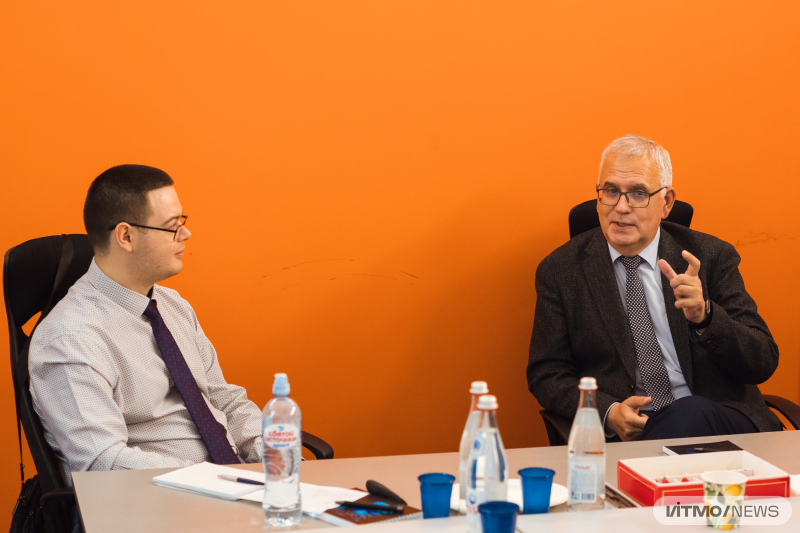
Mikhail Medvedev and Vladimir Knyaginin. Photo by Dmitry Grigoryev / ITMO.NEWS
The laboratory’s primary goal will be to create novel ways to simulate chemical interactions. The laboratory’s initiatives, though fundamental-focused, are in demand by the industry, as well. For example, Dr. Medvedev’s team is presently assisting leading companies in developing molecular models of technological processes, which are crucial for next-gen microelectronic devices. It is also developing AI and machine learning-powered tools to drastically simplify and accelerate chemical experiments. IT solutions might be used to forecast the properties of a chemical molecule based solely on its name or to propose which components and conditions are required to synthesize novel chemicals.
Another area of focus is neuromorphic computing. Neuromorphic networks, which resemble the brain in structure and operation, can help scientists grasp the principles of neuron interactions and move closer to answering the question of how thinking works.
“My goal is to establish a network of decentralized laboratories for scientists, first in Russia and then the world. We already work with several top research institutions and universities, including Lomonosov Moscow State University, Skoltech, and the University of Florida. Jointly, we will delve further into the structure of the world and apply this knowledge to practical problems, such as those experienced by high-tech companies,” stated Mikhail Medvedev, the head of the Laboratory of Theoretical Chemistry.
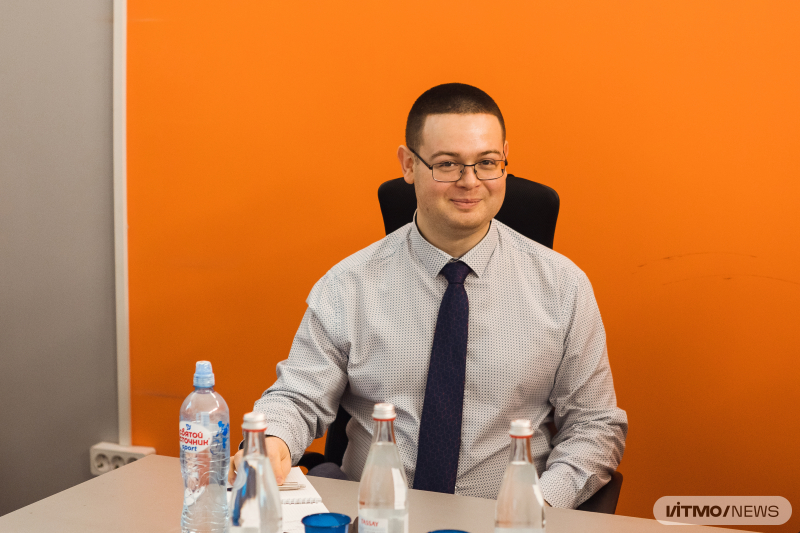
Mikhail Medvedev. Photo by Dmitry Grigoryev / ITMO.NEWS
The team’s achievements will be available in open repositories and journals.
“Using IT solutions, we can accurately determine the structure, behavior, and properties of complex systems and then use this data to develop new compounds for a variety of applications ranging from oil refining to the food industry and biomedicine. We’re now developing a technology for detecting antibiotics in skim milk and, in collaboration with Gazprom Neft, are investigating antioxidant additives for lubricants to extend the life of car engines. Additionally, digital technologies can aid in calculating the behavior of molecules and reactions to produce new, more effective drugs,” noted Prof. Ekaterina Skorb, the head of ITMO’s Infochemistry Scientific Center.
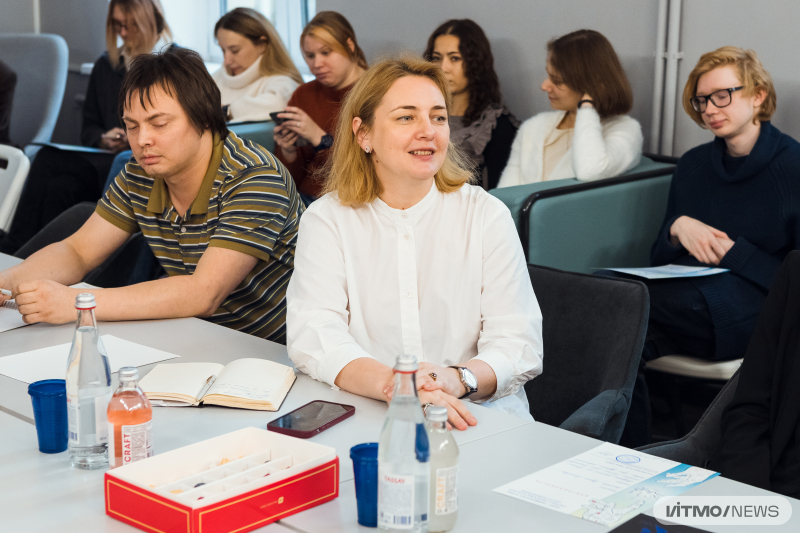
Ekaterina Skorb. Photo by Dmitry Grigoryev / ITMO.NEWS
The laboratory is funded by St. Petersburg's Foundation for Support of Innovations and Youth Initiatives.
